About Us
Curriculum Development
Presentation of courses
The school provides diversified courses in accordance with the Hong Kong Education Bureau’s "Kindergarten Education Curriculum Guidelines" (2017),and by taking into consideration of factors such as children’s needs for development, learning interests, social changes, regional culture, schooling philosophy and parents’ opinions. We arrange courses in a spiral manner based on the age increase and learning level of children. Through the principal, director, and teacher's professional analysis and planning, we continue to review and rectify the courses every year, and to consolidate and improve the curriculum structure.
We carry out moral education by letting children read picture book stories. They can learn to think from multiple perspectives, accept different opinions, and develop their abilities in different extended activities, such as painting, speaking and expressing, and cooperation between partners, so as to enhance the development of children's aesthetics and appreciation of beauty ability. In addition, in order to relieve the worries about starting the first year of primary school and have a better connection for the children in the top classes, we organize an Adaptation Week to let children visit the primary school and let them to be able to adapt to the life of the primary school as soon as possible. In addition, our school also organizes various interest classes in their spare time, such as taekwondo class, painting class, children’s dance, abacus mental calculation, and English singing games. We have also a traffic safety team and a choir. All of this allows children to have an all rounded and balanced development of Moral, Intelligence, Sports, Sociability and Aesthetics.
Key curriculum strategies
1. Strengthen the learning of biliteracy and trilingualism
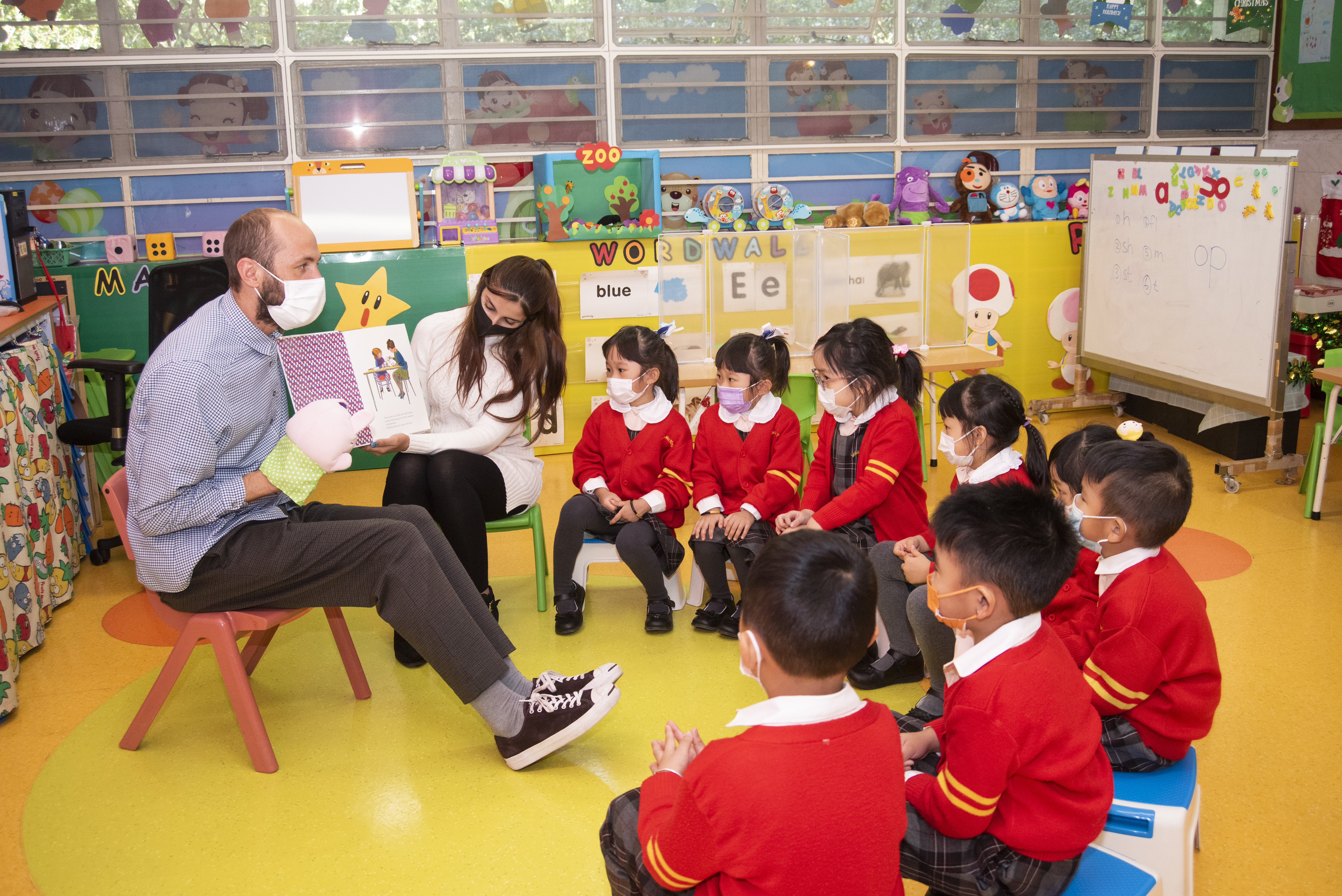
.jpg)
The kindergarten stage is the prime time for children's language development. The contact and learning of biliteracy and trilingualism is necessary for their life and learning, and more importantly, they cultivate children's interest in language learning. In order to enhance children's interest and ability in language, our school recruits foreign English teachers and domestic professional Mandarin teachers, and implements English and Mandarin courses every week. Foreign teachers engage in giving English story lessons and pinyin teaching to enhance children’s ability to read English; Mandarin teachers often use the rhythm of music to strengthen children’s ability to listen to Mandarin and physical coordination, and stimulate children’s interest in learning through diversified models and improve their level of learning.
2. Picture book activity
.jpg)
.jpg)
Taking picture books as a medium, we use the core purpose of the book to design courses and extended learning activities suitable for children based on children’s interests and comprehensive development capabilities, so as to develop distinctive class-based studies and create new children’s picture books. In addition to comprehensively improving children's language quality, it can also achieve the effect of enhancing children's nine common abilities.
3. Optimize "Peer learning"
.jpg)
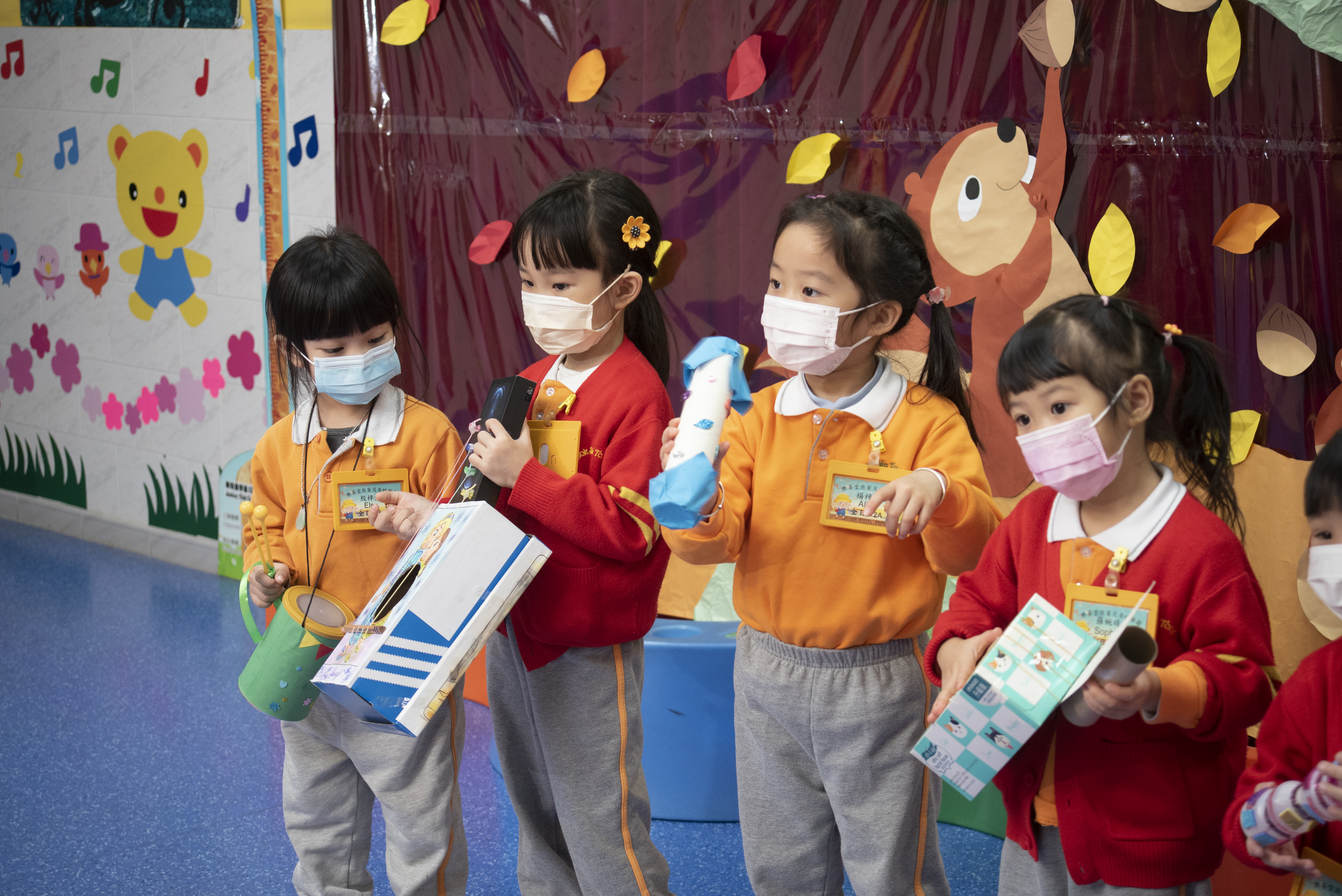
The school uses school-based voice and sentiment teaching techniques, and emphasizes the process in constructivist teaching. Through discussion and communication, children can learn to express and to accept other people’s opinions, to modify their own views, to negotiate with others, to learn to collaborate. We offer more opportunities of demonstration and encourage children to participate in these opportunities, which help improving the quality of learning and cater for individual differences.
4. Project learning activities
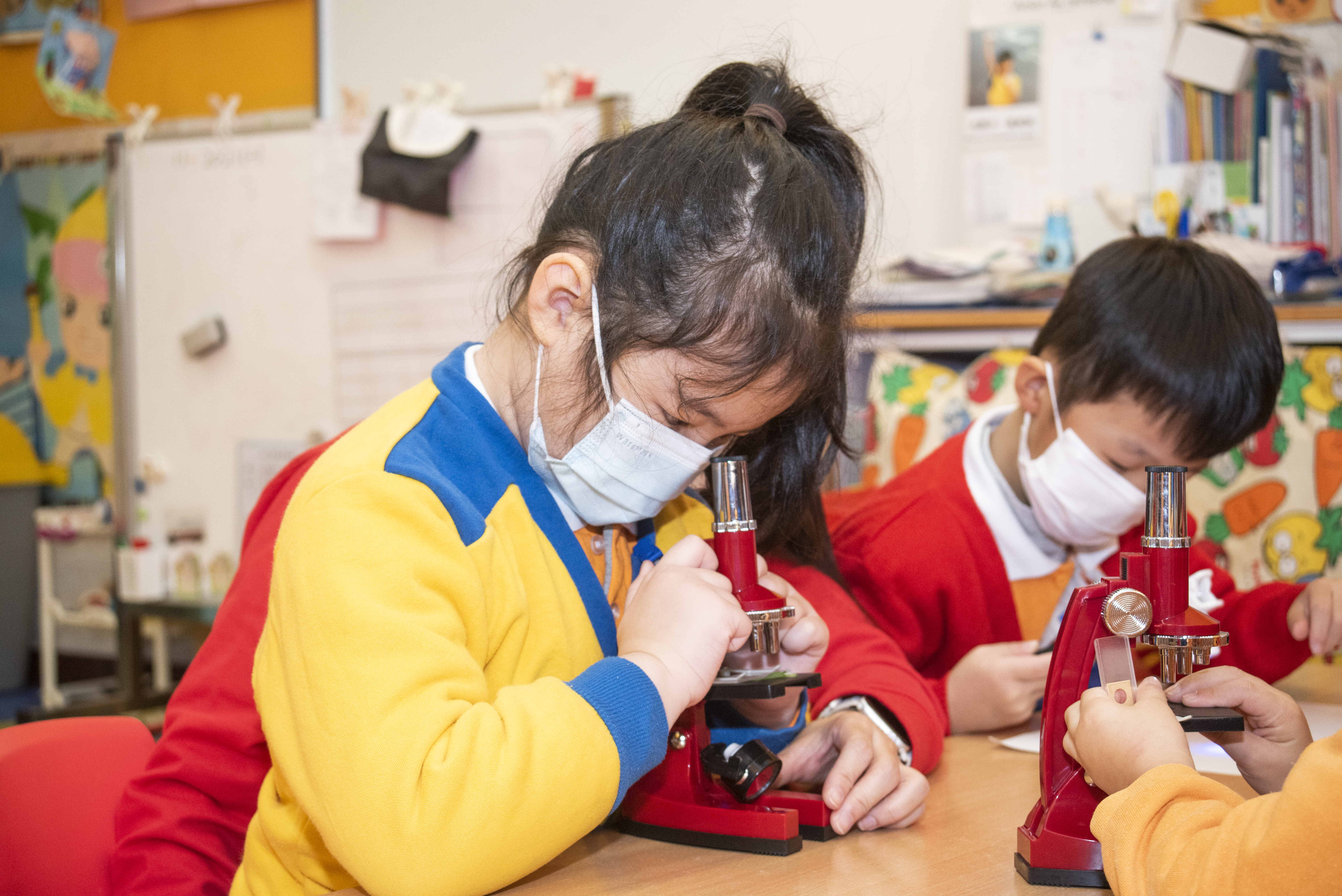
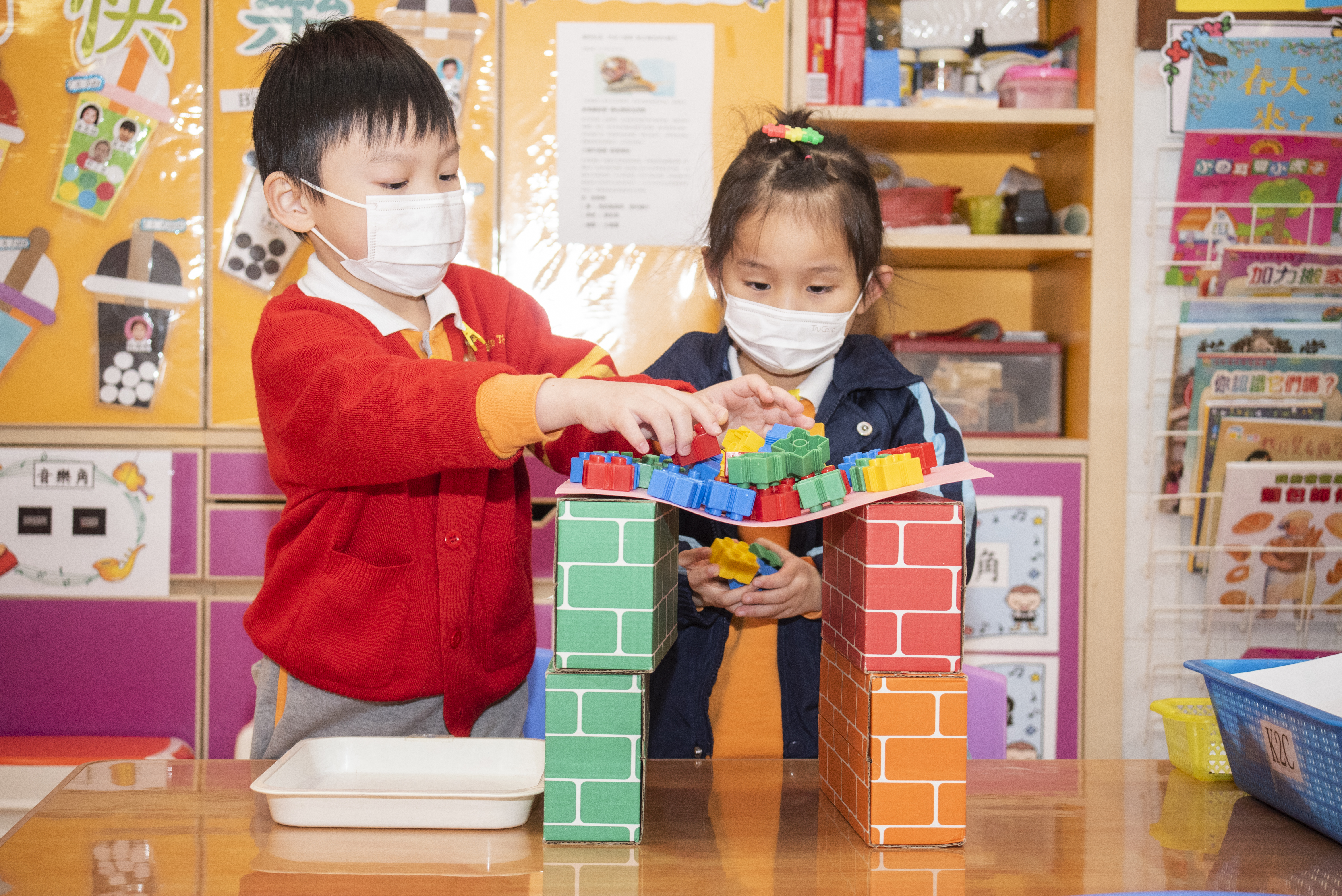
We organize project learning activities with different themes, so as to offer children the opportunities to experience, to operate and to apply in person, such as: observation, exploration and experimental activities, visits to libraries, ocean parks, science museums, etc., enriching children's learning and living experience with on-the-spot study.
5. Broaden the learning experience
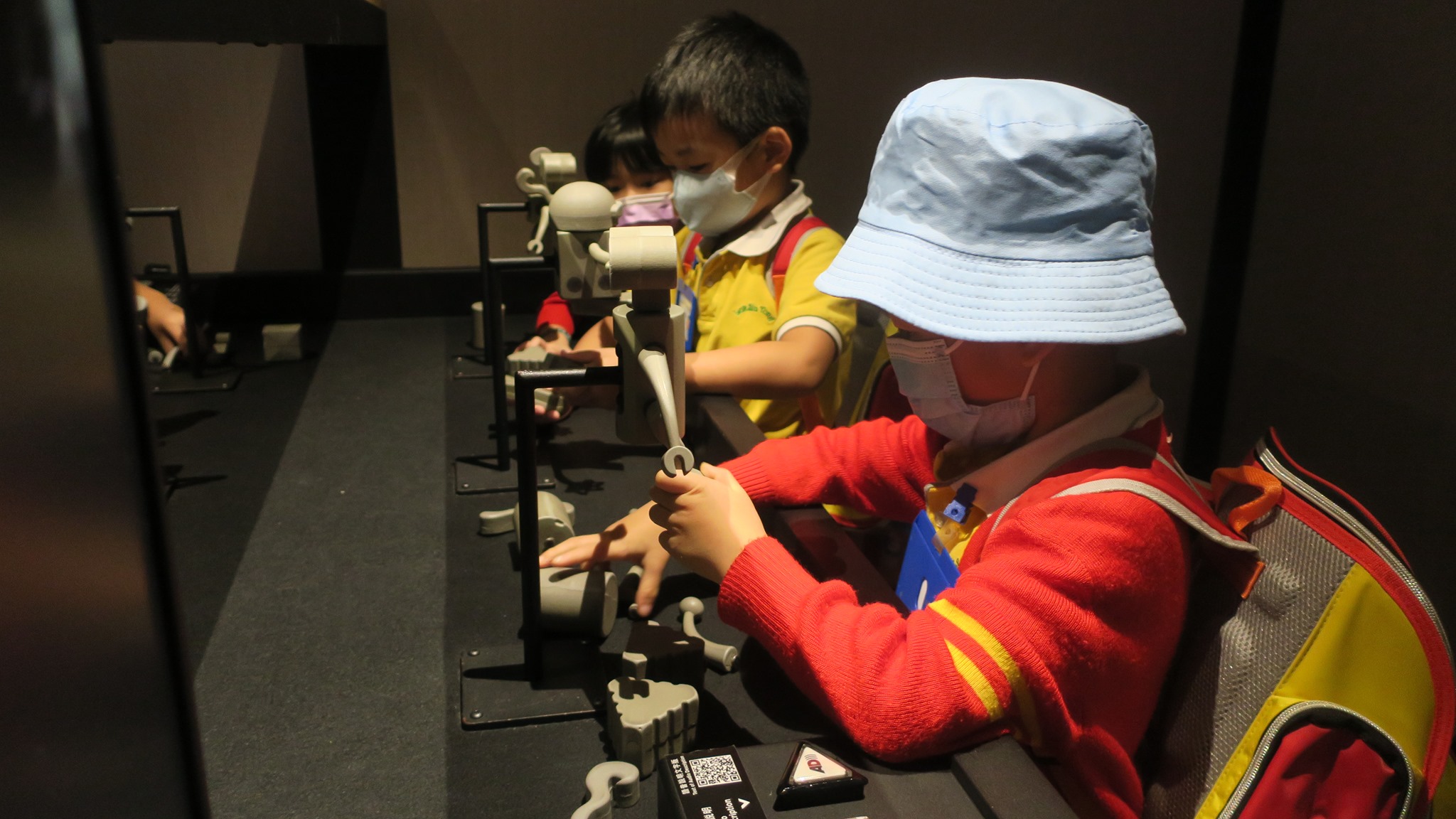
The kindergarten will tailor the curriculum according to school-based needs, broaden children’s cognitive areas in association with all levels of thematic teaching , and arrange children’s visits in a timely manner according to the learning content, such as: visits of Traffic Safety City, Sunny Smile Park, Fire Station, Reptile House, etc. , so as to broaden the learning environment of children.
6. Make good use of community resources
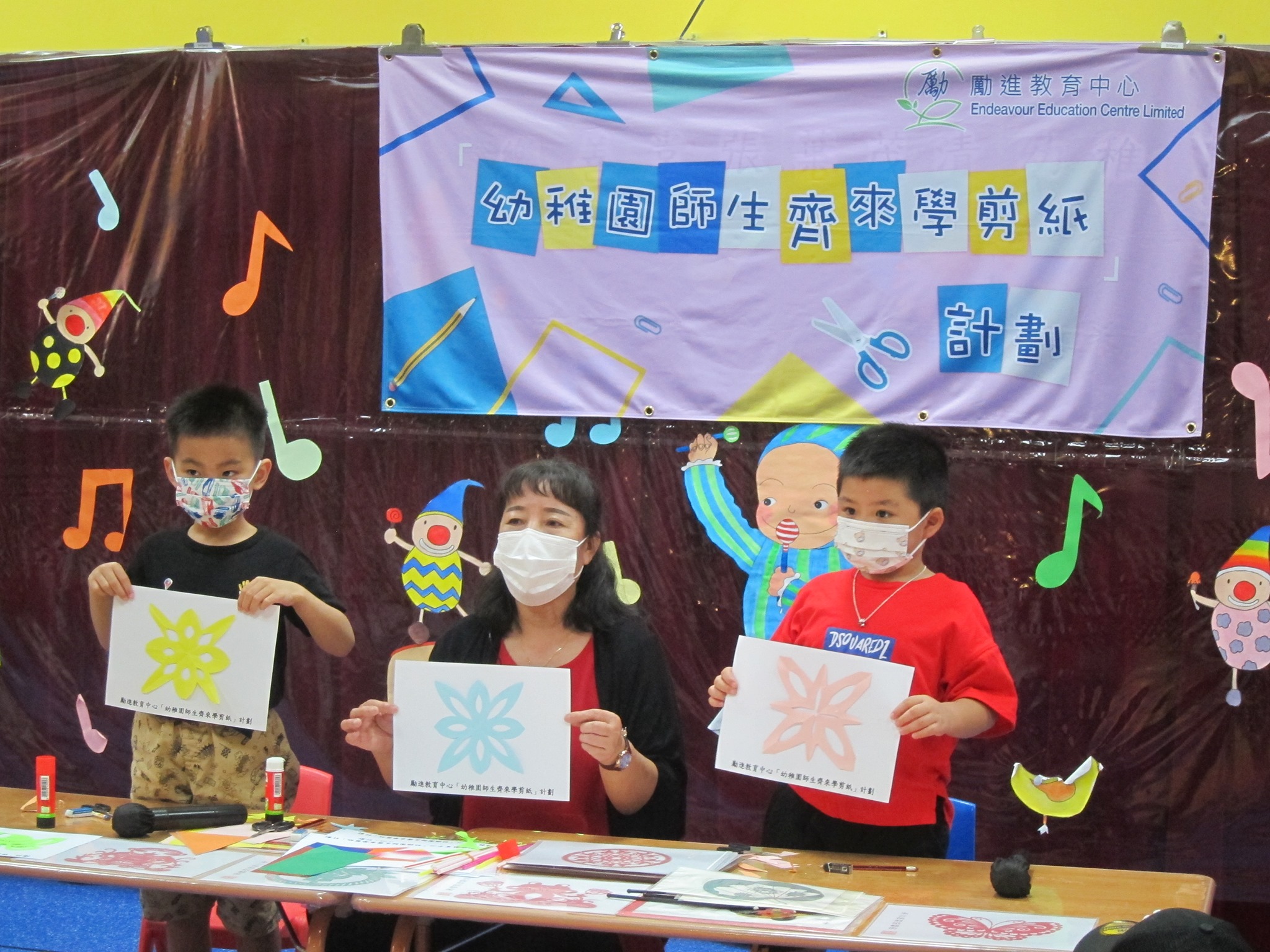
Make good use of community resources to help the implementation of courses, for example: traffic safety lectures, home safety lectures by the Electrical and Mechanical Services Department, visit to the post office, visit to building administrators, leading children to the environmental recycling bins in the district to donate clothes, inviting firefighters to schools to guide children’s fire drills, visit to light rail stations, parks, supermarkets and shopping malls, etc., so as to deepen children's awareness of the community and their sense of belonging to the community.
7. Connection between kindergarten and primary school
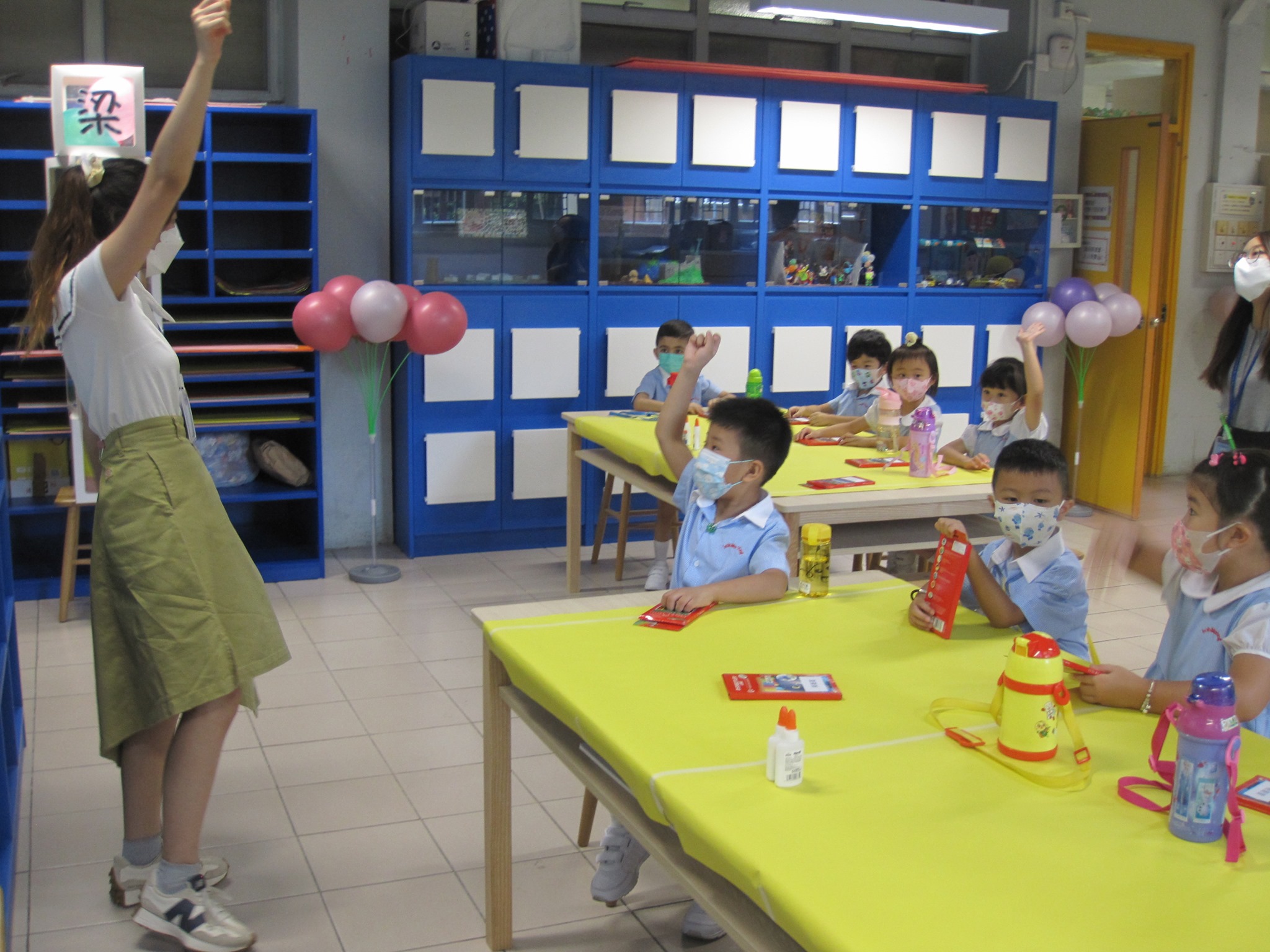
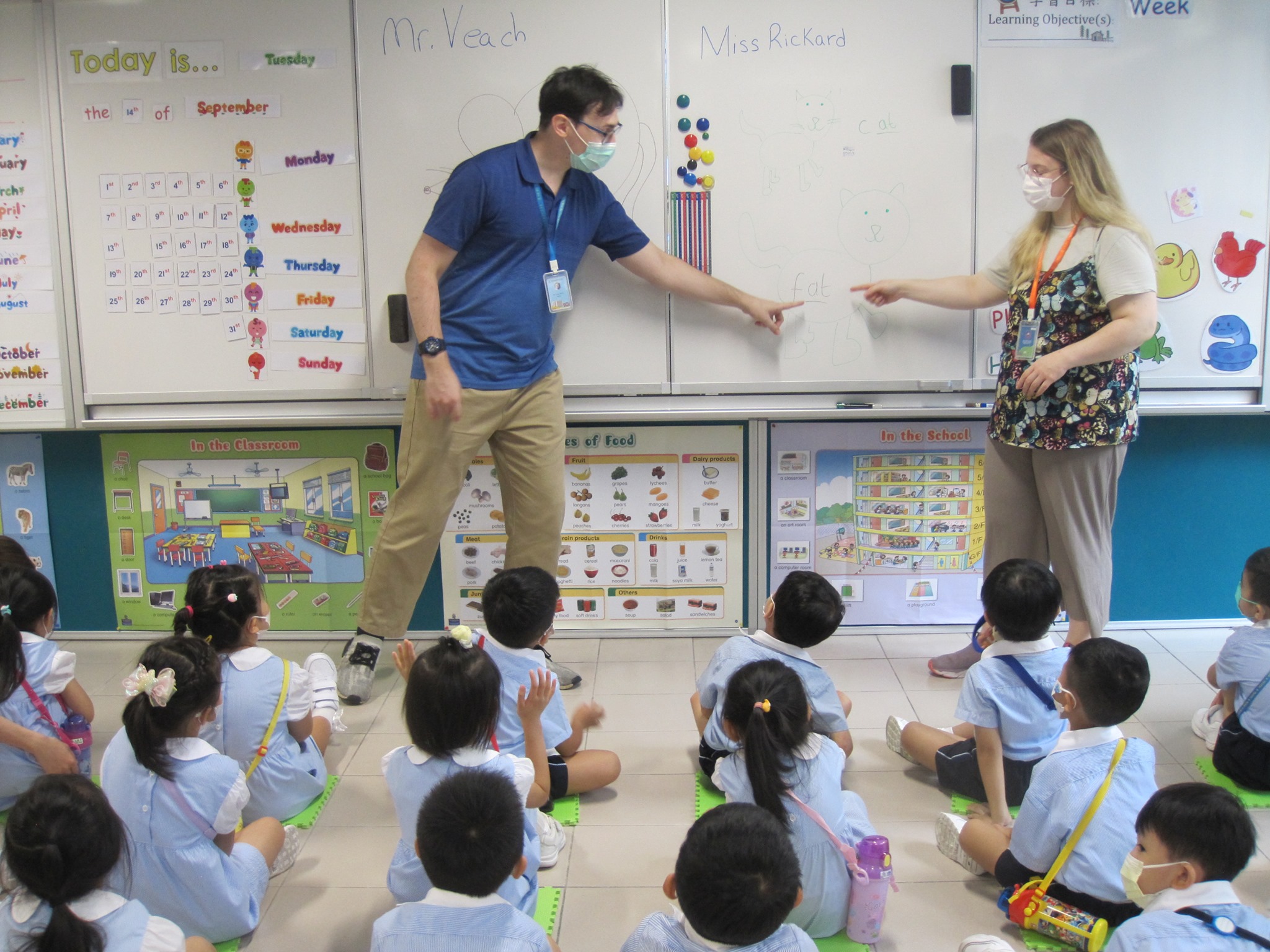
Kindergarten is the starting point for children to receive formal education. Education in kindergarten should correspond to that of primary school, middle school and even universities in order to allow one to complete an overall educational image. Therefore, the connection between kindergarten and primary school’s study life is the most important. In order to let children understand earlier the life of students in primary schools, we arrange children of top classes to visit the primary schools of Lok Sin Tong in Tuen Mun and Tin Shui Wai and ask them to attend class. We organize also simulated primary school first grade week in the school to help children have more confidence to start their study in primary school later.
8. Activities organized in accordance with different solar terms or special festival
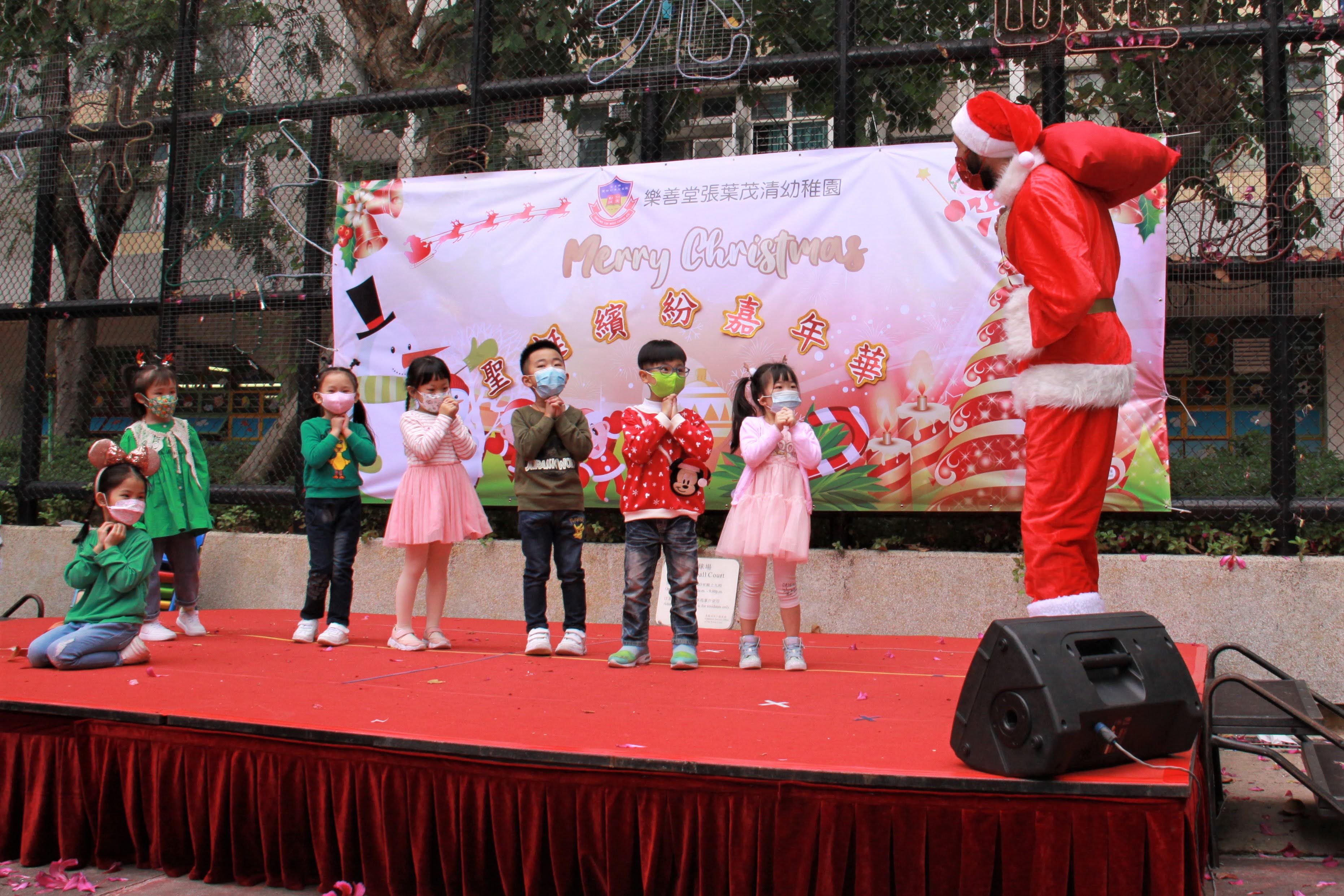
In order to celebrate different solar terms or special festivals, our school will hold booths or extended activities, these festivals include National Day, Mid-Autumn Festival, New Year's Day and Easter, etc. Booths will be set up in the school or outdoor courts, and by means of playing games, we present different festivals and culture to children who are allowed at the same time to experience the joy of festivals.



